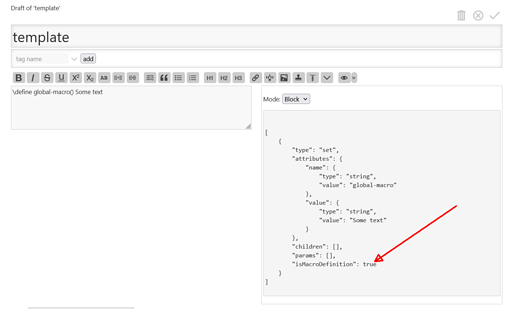I’ve been reading up on \import at Tiddlywiki, but I don’t understand how it functions to be completely honest.
When looking at the tiddler in question, the example doesn’t make much sense and even when placing it into a fresh TW and creating a tiddler tagged how the example states, nothing happens.
I could very well be misunderstanding how it works, but should I not be able to use \import to import <$vars>?
What I want to achieve is having a Tiddler, lets call it “Soccer Team”, and inside is “<$vars timmy=”[[timmy|goalie timmy]]" jack="[[jack|player jackson]]"></$vars>" and it is tagged “MyTeam”
and in another tiddler, titled “Attendance” to just type “\import [tag[MyTeam]]
<<timmy>> and <<jack>> are out sick.”

